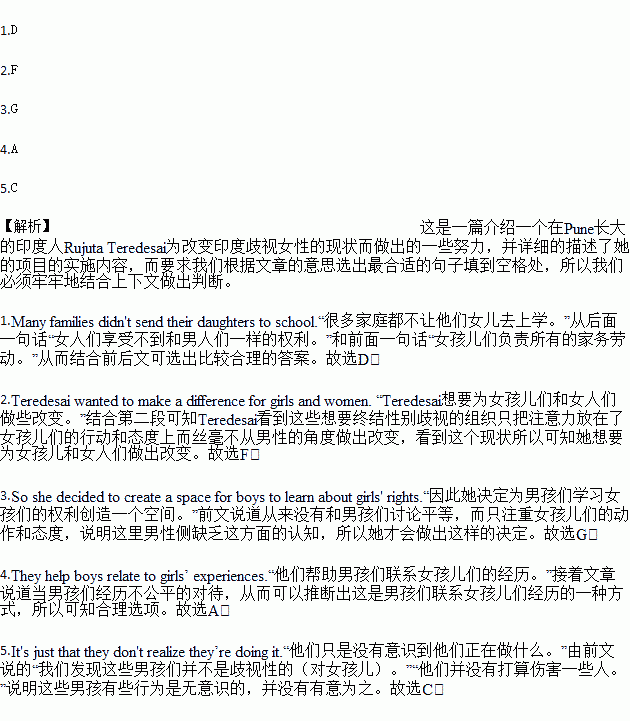题目内容
Rujuta Teredesai grew up in Pune,a city in India.She saw that girls and boys in her community were not treated equally.Girls were responsible for all the household work.1.women didn't have the same rights as men.They often suffered from mistreatment and sometimes even physical violence.
2.But she saw that organizations working to end gender discrimination usually paid attention only to the actions and attitudes of girls. "Nobody talked to young boys about equality," she said.3.The organization,Equal Community Foundation (ECF), now reaches 40,000 people in 20 communities in Pune.
ECF matches small groups of boys,ages 14 to 17,with male mentors for a 15-week period.The mentors talk to the boys about treating girls with respect.4.They discuss times when the boys experienced unfair treatment. Then they work with the boys to come up with ways the boys can help spread tolerance.Boys have completed projects like making maps of the safest routes for girls to walk at night.
"What we have found is that these boys don’t mean to be discriminatory," Teredesai says. "They don't mean to hurt someone.5." When boys work to make girls' lives better,everyone in the community wins.
A.They help boys relate to girls’ experiences.
B.It's part of the solution to end discrimination.
C.It's just that they don't realize they’re doing it.
D.Many families didn't send their daughters to school.
E.Unfair treatment of girls and women is a problem in India.
F.Teredesai wanted to make a difference for girls and women.
G..So she decided to create a space for boys to learn about girls' rights.


 d marketing has effects that go beyond simply increasing our liking or wanting of the product being advertised and actually affect our preferences for all foods in that category,” said Emma Boyland of the University of Liverpool.
d marketing has effects that go beyond simply increasing our liking or wanting of the product being advertised and actually affect our preferences for all foods in that category,” said Emma Boyland of the University of Liverpool.